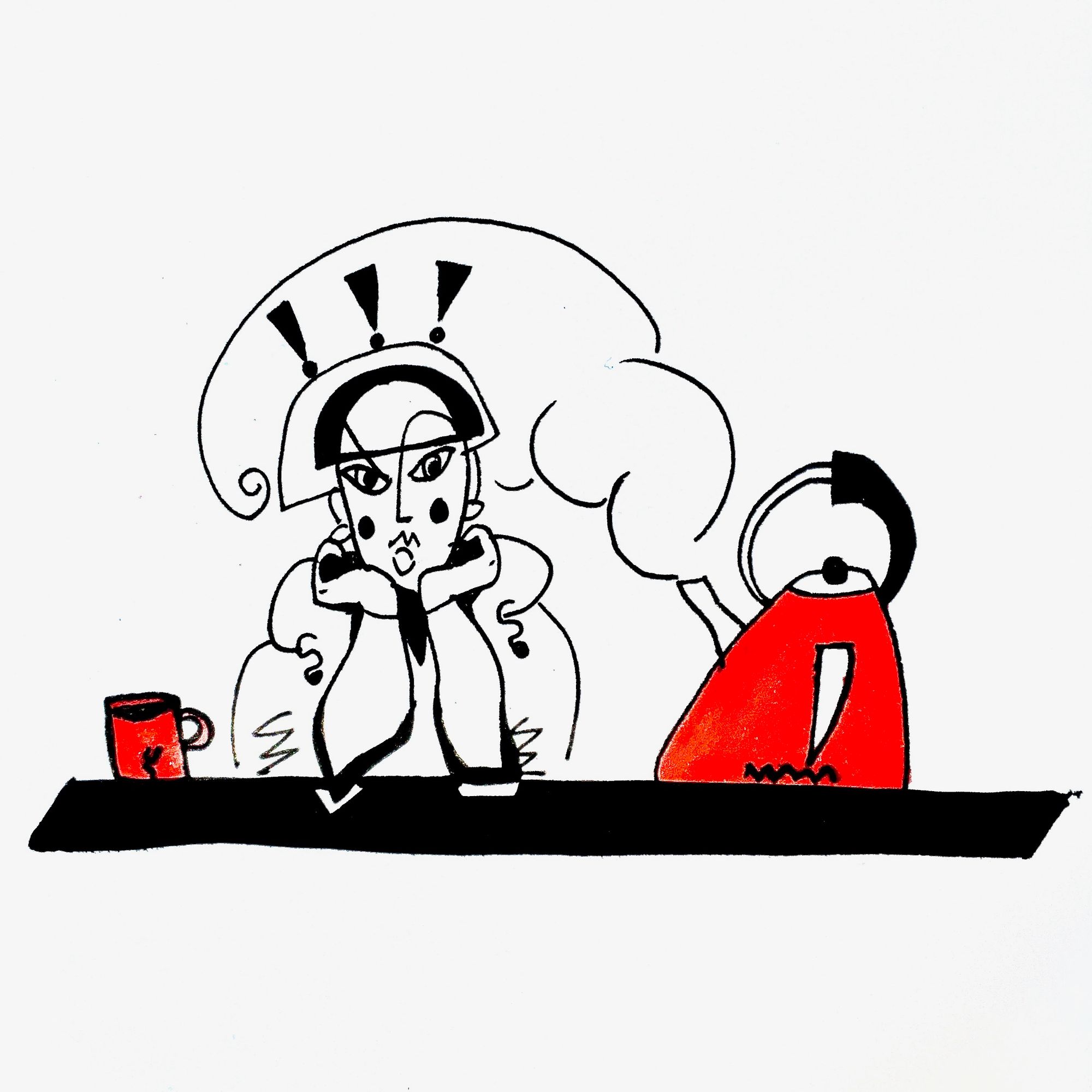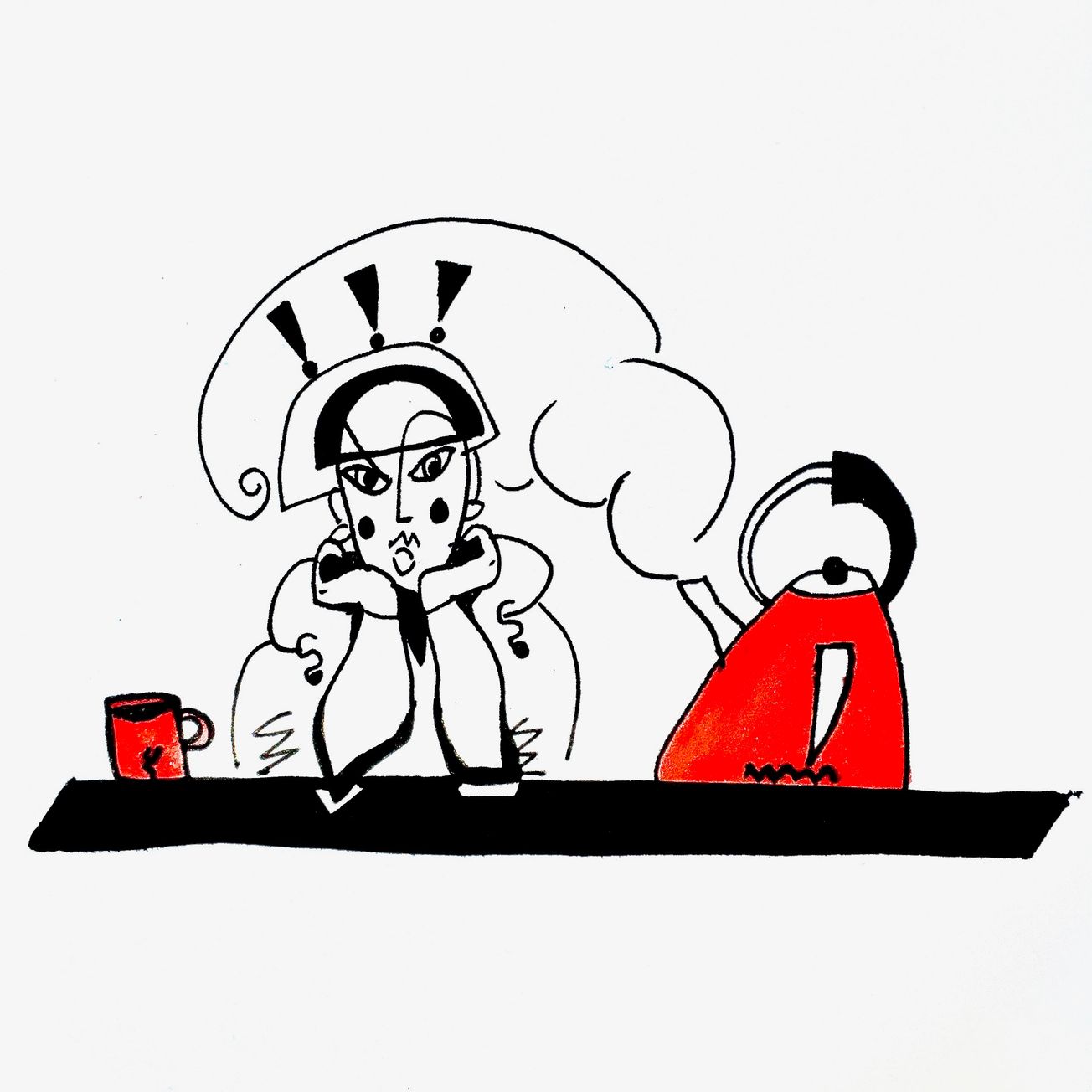By Maddi Lane, Wellbeing Online Columnist
The Croft // In the first article of 'The Stress Melt' series, our online columnist shares the many factors that can make starting university a daunting and overwhelming experience and the evolutionary science behind modern-day stress.
Starting University.
Moving to a new city.
Watching your new flatmates cook a chicken breast on a sheet of tin foil in the oven with no seasoning.
Halls. Losing your keys. Missing bin day. Not managing your workload. Underperforming (sexually and/or otherwise). Writing the perfect Insta caption. Maintaining a relationship from home. Going to a new barber. When someone leaves a butter-knife dangling over the side of the sink instead of, you know, just washing it up.
These are all perfectly reasonable and justifiable causes of stress, that many of us (with the exception possibly of those abject culprits capable of the base and uncultured crime of unseasoned chicken), experience in day-to-day life.

Like most things in life, stress can affect us all differently and a situation that may leave some with a racing heart and clammy hands, others will breeze through with seemingly no issue.
Starting at university, for example: those who are particularly susceptible to stress may see moving away from the comfort and security of home and into the uncharted territory of halls as an extremely stressful situation. Whereas this may be considered a tiny blip in the smooth sailing experience of life which more easy-going individuals enjoy - which is not to say that these people will never experience stress.
This column will address some different causes of stress, impacts it can have on your health, and ways of managing stress in order to improve your quality of life
Stress is a completely subjective and personal experience which can often be overlooked, massively affecting wellbeing and happiness. This column will address some different causes of stress, impacts it can have on your health, and ways of managing stress in order to improve your quality of life.
Stress is basically just one massive overcompensation off the back of human evolution for survival. At some point in human existence, when we were all still scratching around in each other’s hair in search of a nice tasty snack, the body’s ability to flood with cortisol, adrenaline and noradrenaline would have been very useful in escaping the plausible threat of a defensive mummy mammoth.

However, nowadays, when the potentiality of bumping into a regretful one-night stand in Clifton Down Sainsbury’s sends the alarm bells ringing in my adrenal gland, I hardly see the evolutionary appeal.

The chemicals released by this gland can affect blood pressure, heart rate, breathing and even short-term memory. Stress can go so far as to alter cognitive pathways in the brain which affect our serotonin levels, in some cases leading to depression.
This is why it’s really important to manage our stress levels: ensuring we get enough of that sweet, sweet serotonin and improving our overall quality of life.
Stress can go so far as to alter cognitive pathways in the brain which affect our serotonin levels, in some cases leading to depression
Whether you’re a fresher starting at the University of Bristol, a student returning for another year, or any human on planet Earth, the best thing you can do to manage your stress is to talk to someone. Don’t let your anxieties build up inside until you have an emotional breakdown over someone boiling a whole kettleful of water when only one mug was required.
First impressions are important and trust me, the above circumstance does not make a good first impression (definitely not speaking from experience, I would just like to point out here).

The second best thing you can do to manage your stress is to continue reading this column, published fortnightly on Wednesdays on Epigram's website, in which I will address many different ways to keep your stress levels manageable and to improve your overall quality of life.
Featured image: Epigram / Astrid Lucia Spruzen
Chronic vs healthy stress: which one are you feeling?
The myth of productivity: how doing nothing can really be doing something









